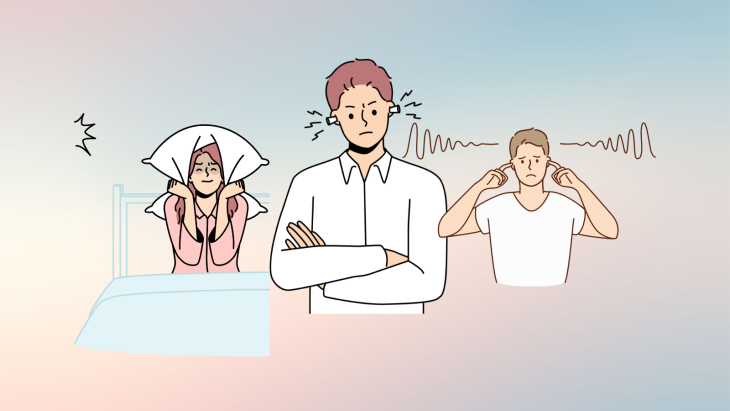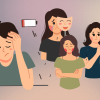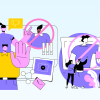Recent Posts
Most Popular
Am I too sensitive to noise? It drives me crazy! The psychological effects of noise on mental health

Have you ever met someone who always complains about certain noises or one who becomes angry because they think this and that is too loud? Especially when the sound they are referring to may seem alright to us, frequent complaints about noise may be a cause of misunderstanding and conflict.
But how can something as simple as sound be an area of disagreement? Are they just overreacting? Or is there a basis to their intolerance of certain sounds that we can explore some more?
In a study in the UK, researchers found that there are 2 to 9% in the UK population who are sensitive to noise, and 60% of these people said that this noise sensitivity had a huge impact on their daily lives.
Meanwhile, in the US where half of the population is exposed to sound that is already considered harmful to physical and mental health, noise is now considered a health hazard.
Noise and Mental Health
Experts have found that noise sensitivity often co-occurs with mental health conditions such as:
- Obsessive Compulsive Disorder
- Autism
- Trauma
- Sensory Processing Disorders
- Anxiety
There are 3 types of sound sensitivity conditions.
1.Misophonia. People who struggle with misophonia can become angry about particular sounds. A type of noise can function as an emotional trigger to anger or hate. Another name for it is selective sound sensitivity syndrome.
People with misophonia may say that a certain sound drives them crazy. They especially have an issue processing repetitive sounds (and motions that come with repetitive sounds) such as tapping, chewing, and fidgeting. In severe cases, these sounds can make a person with misophonia panic and flee.
This condition is yet to be fully understood, but doctors say that there might be an issue in the brain’s fight/flight response and sound which our body uses to warn us of danger.
2. Hyperacusis. Everyday sounds become an issue with people struggling with hyperacusis. Although rare, hyperacusis comes with a condition where there is a buzzing or ringing sound in the ear called tinnitus.
What we may consider as white noise such as the running water from a faucet, the low ping when an appliance opens, or even conversations around us may become challenging and too loud for a person with hyperacusis, and there are many possible reasons for developing it including Post traumatic stress disorder (PTSD), autism and diseases like Meniere's disease and Bell’s palsy. However, studies also show that almost half of people with hyperacusis also struggle with anxiety.
3. Phonophobia. Can be developed by both adults and children, photophobia or sonophobia is mainly not caused by physical factors, but by mental issues such as anxiety or being on the autistic spectrum. In phonophobia, loud and unexpected noises trigger anxiety and panic.
The exact cause of this specific phobia to loud noises is not yet known, but researchers say it has to do with genetic factors, and it is linked with childhood trauma or traumatic events.
With these said, the treatment for these types of noise sensitivity would depend on the probable cause. Going to see your doctor including your mental health professional will help you determine the best possible course of action.
For people who struggle because they feel misunderstood, or harshly judged because of their noise sensitivity, a consultation with an expert has changed their lives for the better.
The weight on their shoulders feel lighter because they finally get to understand why they react the way they do about certain noises, and they are taught ways to adjust their lifestyle and manage their noise sensitivity.
Get insights from the US' premier job board for health care and mental health professionals and connect with top talents across the nation!








Comments